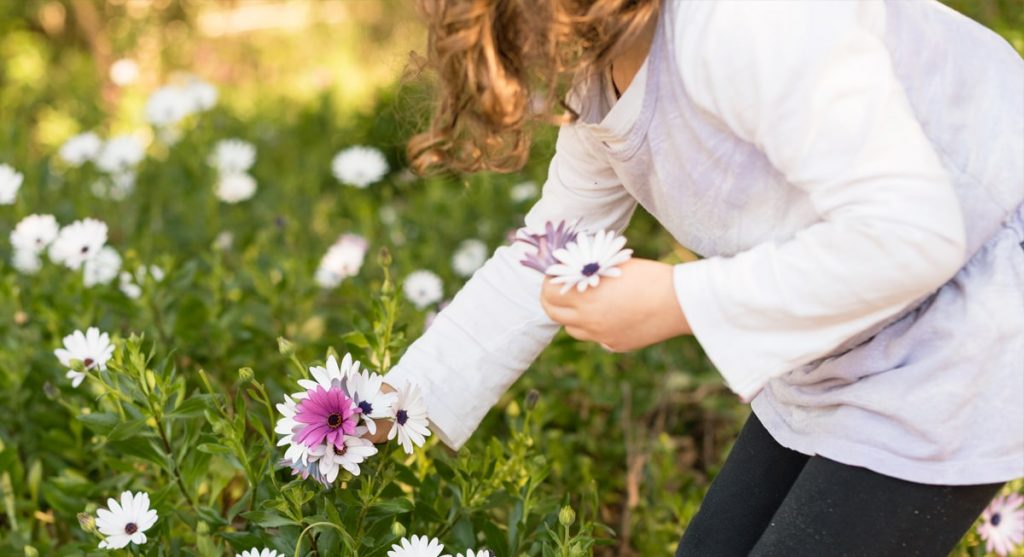Picking wildflowers might seem like a harmless activity, one that connects you to nature and offers a moment of beauty. However, there are several compelling reasons to reconsider this impulse and admire these blooms where they stand. Here’s why thinking twice before picking wildflowers is a good idea:
Disruption of Natural Regeneration
Wildflowers seed the future of their species. Picking them, especially before they’ve had the chance to seed, can significantly reduce their numbers in subsequent seasons, hampering natural regeneration.
Impact on Pollinator Lifecycles
Many pollinators, including certain bee and butterfly species, rely on specific wildflowers for nourishment during critical lifecycle stages. Removing these plants can disrupt the lifecycle of pollinators, which are vital for the pollination of many other plants, including crops.
Decrease in Genetic Diversity
Picking wildflowers, particularly in large quantities, can lead to a decrease in the genetic diversity of the species. This diversity is crucial for the plant’s resilience to diseases, pests, and changing environmental conditions.
Loss of Educational Opportunities
Wildflowers in their natural habitat serve as an open-air classroom for educators, students, and nature enthusiasts to learn about ecology, botany, and environmental science. Removing these plants diminishes the opportunity for education and appreciation of the natural world.
Reduction in Nature’s Aesthetic Value
The collective presence of wildflowers contributes to the aesthetic value and the overall health of natural habitats. Their removal not only diminishes the visual appeal but can also alter the character of the landscape, making it less inviting for recreation and enjoyment.
Interference with Scientific Research
Scientists studying ecology, plant biology, and environmental science often rely on undisturbed sites to gather accurate data. Picking wildflowers can interfere with research efforts aimed at understanding ecosystems and addressing environmental challenges.
Contribution to Climate Change Mitigation
Wildflowers, like all plants, play a role in sequestering carbon dioxide, a greenhouse gas contributing to climate change. Preserving these plants in their natural environment supports broader efforts to mitigate climate change impacts.
Moral and Ethical Considerations
Taking wildflowers from their natural setting raises ethical questions about human entitlement to nature’s resources. Respecting the intrinsic value of wildflowers and their right to exist undisturbed encourages a more ethical relationship with the natural world.
Promotion of Mindfulness and Respect
Observing wildflowers where they grow promotes mindfulness, encouraging individuals to slow down and appreciate the beauty and complexity of nature. This mindful observation fosters a deeper respect for natural environments and their inhabitants.
Support for Local Flora and Fauna
Wildflowers support a range of local fauna, from insects to larger animals, by providing habitat and food. Preserving these flowers helps maintain local biodiversity, supporting the health and balance of ecosystems.
Environmental Impact
Wildflowers play a crucial role in ecosystems, supporting pollinators like bees, butterflies, and birds. Removing these flowers can disrupt local wildlife food sources and pollination processes, potentially harming the environment.
Legal Restrictions
In many areas, it’s illegal to pick wildflowers from public lands and national parks due to their ecological importance. Such regulations are in place to protect native species and preserve natural beauty for everyone to enjoy.
Endangerment of Species
Some wildflowers are rare or endangered, and picking them can contribute to their decline. Even if a flower seems abundant in one area, it may be scarce or under threat in others.
Soil Erosion
Wildflowers help to stabilize soil and prevent erosion. Removing these plants can lead to increased soil erosion, impacting water quality and habitat stability in the area.
Cultural Significance
Certain wildflowers have cultural or historical significance to indigenous or local communities. Picking these plants can disrespect cultural traditions and heritage.
Spread of Invasive Species
Disturbing natural areas by picking flowers can inadvertently spread invasive plant species. These invaders can be transported on shoes, clothing, or the flowers themselves, threatening native ecosystems.
Aesthetic Reasons
Wildflowers in their natural setting contribute to the scenic beauty of an area, offering enjoyment for all who visit. Picking them diminishes this shared experience, robbing others of the pleasure of seeing these flowers in the wild.
Personal Safety
Some wildflowers are toxic or can cause allergic reactions upon contact. Without thorough knowledge, you might unknowingly pick a plant that’s harmful to you or others.
Sustainability
Leaving wildflowers to grow and seed naturally ensures their presence for future generations. Sustainable enjoyment of nature includes preserving its beauty and resources.
Encouraging Responsible Tourism
By choosing not to pick wildflowers, you set an example for responsible tourism and environmental stewardship. This approach fosters a culture of respect and appreciation for natural landscapes.


